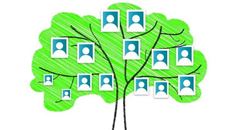- Delivery Method Online
- Professional Certificate
- 24hrs Suggested Study Time
- 3 Months Access
- Tutor Support
- Study On Any Device
- 2912 Students
Research Methods for Writers

Learn the most efficient and effective methods to conduct research for any writing project.
Attention all writers! Learn how to efficiently and effectively conduct research for any writing project: fiction, nonfiction, business . . . even term papers and dissertations. Modern research techniques are boundless. The trick is to know where to look and what to look for.
This self-paced online course teaches the best methods for mounting a search on any subject.
You'll take a virtual guided tour of the library and how to maximise its precious resources, and you'll discover how to access public records, conduct successful Internet searches, and explore other similar treasure troves of information.
Personal interviews, public reports, surveys and polls, and historical research are introduced and dissected. A special lesson on Guerilla Research reveals secrets for the undercover researcher. As a plus, detailed instructions are offered for getting organised before embarking on research and getting the most out of information once it's gathered.
This course will give you the tools you'll need to successfully gather and incorporate all the information any polished and professional writing project requires.
Courses are delivered to you through expertly executed lessons, online instruction and interaction with like-minded students. Our courses are designed to deliver all of the benefits of studying in a classroom whilst giving you the flexibility to study at a time and place to suit your needs. You can access your classroom 24/7 from any device with an internet connection.
This course has a 3 month duration. You'll complete comprehensive lessons, quizzes and assignments before submitting your final exam at the end of the course to achieve your certificate. Courses must be completed within the 3 month access period.

Jacquelyn Landis
Jacquelyn Landis holds a bachelor's degree and has worked as a nonfiction editor for over 15 years. Her editing repertoire includes books, articles, and business manuals written by best-selling authors such as Eva Shaw, George Carpozi, Anthony Rob... Read more
Read Jacquelyn Landis's ProfileFrequently Asked Questions
What people are saying about our courses
The Learning Environment
From the moment that you enrol in the Research Methods for Writers you will become an integral part of our learning community. You'll find yourself with the freedom to learn at a speed that suits you, on any device, from anywhere in the world. Achieving your career goals no longer has to mean compromising family and work commitments.
Our Values
Learn At Your Own Pace
We believe in personalised learning. That's why we provide all the tools and support you need to succeed at your own pace. With flexible learning, you'll stay motivated and retain more information. Plus, you can balance your studies with work and family commitments to make your dreams a reality.
We Won't Break The Bank
Education should be accessible to anyone who wants to learn. That's why we offer some of the most competitive prices in the industry with payments plans for just $25 per week. Investing in your future is a smart choice and doesn’t have to break the bank.
Industry-Led Courses
There's no better way to learn than from experts with years of experience in your field. That's why each of our 200+ industry-led courses are designed to give you a real-life perspective on your industry. With our expert mentors, you'll learn from people who have a wealth of knowledge and experience, and who are passionate about sharing it with you.
Get The Personal Support You Deserve
At Vibe Learning, we're real people who are dedicated to providing you with personal support every step of the way. Our industry experts are not only professional and knowledgeable but also incredibly passionate about sharing their expertise with you. With their guidance, you'll gain invaluable insights and practical knowledge to help you succeed.
Still looking?
Check out the following courses related to Research Methods for Writers:





